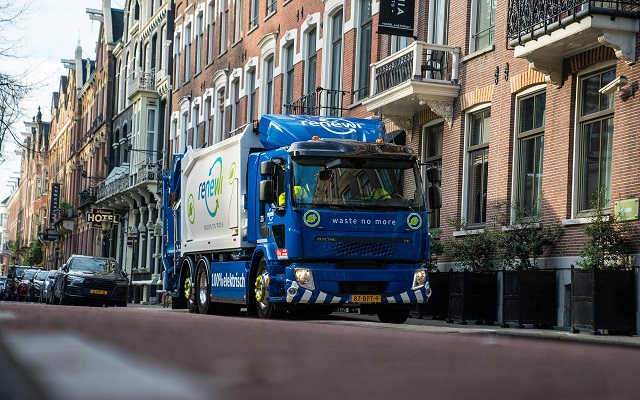Renewi announces new CO2 and recycling reporting for customers in the Netherlands
23 May 2024

Simple and accurate reporting according to CSRD directive
Waste-to-product company Renewi announces that it will offer an innovative CO2 and recycling reporting tool to all its customers in the Netherlands this year. This tool meets the European Corporate Sustainability Reporting Directive (CSRD). The new CSRD requires companies to report their impact on climate, society, and policy (ESG), with waste being a key issue. Renewi invested in a thorough and objective calculation by research firm TNO. TNO calculates the actual CO2 emissions per waste stream and recycling percentage specific to Renewi's processes. This unique service is expected to be rolled out for Renewi customers by the end of 2024.
The CSRD reporting obligation will apply to large-cap listed companies from 2024. Later, it will also apply to many companies not currently covered by the current Non-Financial Reporting Directive (NFRD). Companies will have to report not only on their own CO2 emissions, but also on the emissions in their value chain, as a result of its activities.
CO2 calculations
Renewi already communicated CO2 figures to show how many emissions the customer avoided by offering waste separately, compared to incinerating it as residual waste. These figures make it clear that separating waste not only saves raw materials, but in many cases also avoids CO2 emissions. For CSRD reporting, however, it is not the avoided CO2 emissions but the actual CO2 emissions per waste stream that are required. This involves calculating the amount of emissions released when collecting and processing the waste stream in question. Renewi chose to have the figures for its specific processes scientifically substantiated and objectively calculated and validated by TNO, an independent research agency.
From collection to raw material
For the calculations, the Life Cycle Analysis (LCA) method was applied; from collection to raw material. This included looking at the average number of kilometres driven to collect a waste stream, the type of fuel used and the type of vehicle. But it also looked at the average diesel consumption, gas and electricity per waste stream to sort it with the aim of processing it into circular material.
Dr Esther van den Beuken, Market Manager Circularity at TNO: "The goal of the Netherlands is to make all materials circular by 2050. That is a daunting challenge. Therefore, we need to invest now in all facets to make that possible. From sustainable product design, to new sorting and recycling technologies and close cooperation within value chains. Understanding the actual CO2 emissions and recycling rate across the value chain is important information for companies and a motivation for society to better separate, sort and recycle waste."
Importance of CO2 and recycling reporting
Reporting CO2 emissions and the recycling rate of waste falls within the Environment (E) reporting requirements of CSRD. These figures are needed by CSRD-mandated customers to comply with European legislation. To ensure that customers can access their CO2 emissions and recycling percentages at all times, these will be available in the existing customer portal environment (MyRenewi).
The figures are important not only for CSRD reporting but also for companies with sustainability ambitions. After all, these figures combined with carbon avoidance, show immediately what the environmental impact is of delivering separated waste compared to residual waste. Renewi hopes this will motivate companies to separate waste even better.
Sander Leenders, Commercial Director Netherlands at Renewi: "Complying with the CSR directive requires considerable effort for most companies. Renewi will provide its customers with a unique service to support them even better in achieving their sustainability goals. The new reporting tool is specifically designed so that our customers can easily and accurately report their carbon emissions per waste stream and recycling percentage. This allows companies to make more conscious environmental choices. Together we can contribute to a more sustainable future".